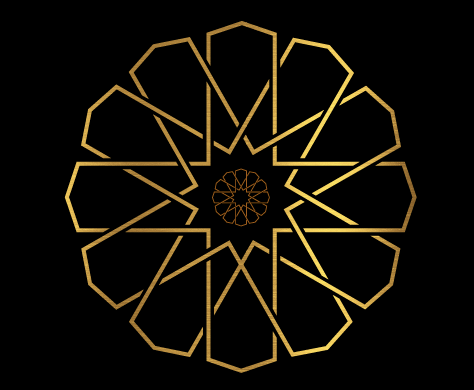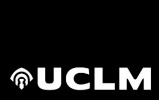Travelling wave phenomena in biology (II)

Organizers: Gabriel Piedrafita & Qiyao (Alice) Peng & José Manuel García Aznar
17:00 – 17:20 – ravelling waves in dryland ecology / Presenting author: Gabriele Grifo.
17:20 – 17:40 – Derivation and travelling wave analysis of phenotype-structured models in cancer invasion / Presenting author: Fiona Macfarlane.
17:40 – 18:00 – Negative feedback driving biodiversity: Transient biomass dristributions and the Janzen-Connell hypothesis / Presenting author: Frits Veerman.
18:00 – 18:20 – Topological defect law for migrating banded vegetation patterns / Presenting author: David Pinto-Ramos.
Model reduction and identifiability

15:00 – 15:20 – Scalable Machine Learning methods to detect meaningful lineages in
viral populations from large amounts of genetic data / Presenting author: Roberto Cahuantzi.
15:20 – 15:40 – Data-Driven model reduction for biomedical data / Presenting author: Ismaila
Muhammed
15:40 – 16:00 – Variable selection for nonlinear dimensionality reduction of biological
datasets through bootstrapping of correlation networks / Presenting author: David G. Aragonés.
16:00 – 16:20 – Analytical Bayesian Framework for Differential Gene expression
analysis on RNA-Seq data / Presenting author: Franziska Hoerbst
Modelling tissue mechanics and cell fate in regeneration and cancer (I)

Organizers: Gabriel Piedrafita & Qiyao (Alice) Peng & José Manuel García Aznar /
10:40 – 11:00 – Modelling a proliferative disorder of the bone: Fibrous Dysplasia / Presenting author: Magdalena Caballero.
11:00 – 11:20 – Efficient cell-based modelling in Julia with applications to development and cancer / Presenting author: Gabriel Torregrosa Cortés.
11:20 – 11:40 – Hybrid cellular potts modelling of angiogenesis: Cell-extracellular matrix interactions and cell-fate decisions / Presenting author: Roeland Merks.
11:40 – 12:00 – A simple predictive cell-fate model of epithelial clone dynamics/ Presenting author: Gabriel Piedrafita.
Travelling wave phenomena in biology (I)

Organizers: Lukas Eigentler & Mattia Sensi
10:40 – 11:00 – How different forms of leadership impact on collective migration / Presenting author: Sara Bernardi.
11:00 – 11:20 – Self-organised patterning in chemotaxis of multicellular communities / Presenting author: Giulia Laura Celora
11:20 – 11:40 – Rethinking tipping points in spatial ecosystems / Presenting author: Swarnendu Banerjee.
11:40 – 12:00 – The role of front instabilities in reversing species invasion and desertification / Presenting author: Michel Ferre Diaz.
Virus Modelling

17:20 – 17:40 – Viral kinetics for early infection of SARS-CoV-2 and risk analysis / Presenting author: Jingsi Xu.
17:40 – 18:00 – Accurate and efficient integration of within-host models into discrete stochastic population models of infectious diseases / Presenting author: Mark B Flegg.
18:00 – 18:20 – Efficient coupling of within-and between-host infectious disease dynamics / Presenting author: Cameron Smith.
Cell migration

17:20 – 17:40 – Computing the dynamics of motile bacteria using a calibrated numerical model / Presenting author: Bruce Rodenborn.
17:40 – 18:00 – Modelling diffrential adhesion in stochactic and mean-field models of cell migration / Presenting author: Shahzeb Raja Noureen.
18:00 – 18:20 – Mathematical modelling of mechanical communication between cells / Presenting author: Juan Arellano-Tinto.
Recent developments on tumor growth models: analysis and simulations

Organizer: Xinran Ruan
15:00 – 15:20 – PDE models for the spatial spread and evolutionary dynamics of heterogeneous cell population / Presenting author: Tommaso Lorenzi.
15:20 – 15:40 – Tumor growth with a necrotic core as an obstacle problem in pressure / Presenting author: Zhennan Zhou.
15:40 – 16:00 – Mathematical problems in a class of tumor growth models / Presenting author: Yu Feng.
16:00 – 16:20 – Structure preserving schemes for tumor growth models / Presenting author: Xinran Ruan.
Predator-prey models

15:00 – 15:20 – Qualitative analysis in a discrete-time model of competing prey with a shared predator / Presenting author: Debasis Mukherjee.
15:20 – 15:40 – Impact of predator-driven Allee and spatiotemporal effects on a simple predator-prey model / Presenting author: Kaushik Kayal.
15:40 – 16:00 – The wolverine and reindeer: on the role of prey senescence in predator-prey dynamics / Presenting author: Ludek Berec.
16:00 – 16:20 – Growing up and feeling like a loser. Impact of maturation delay on the eco-evolutionary dynamics of zero sum games in changing envionment / Presenting author: Krzysztof Argasinski.
Population dynamics (animals)

15:00 – 15:20 – Incorporating heterogenity in farmer disease control behaviour into a livestock disease transmission model / Presenting author: Edward Hill.
15:20 – 15:40 – A simulation model for porcine diseases in a farrow-to-finish pig farm with intra-herd transmission through animal and farmer movements / Presenting author: Jerrold M. Tubay.
15:40 – 16:00 – Identifying environmental and ecological risk factors for highly pathogenic avian influenza in wild birds / Presenting author: Joe Hilton.
16:00 – 16:20 – Bioeconomic modelling for sustainable biological control against a cabbage pest / Presenting author: Frédéric Grognard.
Modelling collective cell migration across scales: from individual-based to continuum models

Organizers: Juan Jiménez – Sánchez & Tommaso Lorenzi.
10:40 – 11:00 – Macroscopic limits of kinetic equations for interacting multi-species systems / Presenting author: Gissell Estrada-Rodríguez.
11:00 – 11:20 -Modelling collective migration of phenotypically heterogeneous cell populations: a multiscale kinetic approach/ Presenting author: Nadia Loy.
11:20 – 11:40 – Evolution of phenotypic plasticity leads to tumour heterogeneity with implications for therapy / Presenting author: Simon Syga.
11:40 – 12:00 – Linking discrete and continuous models of cell birth and migration / Presenting author: Duncan Martinson.
Stéphanou.



